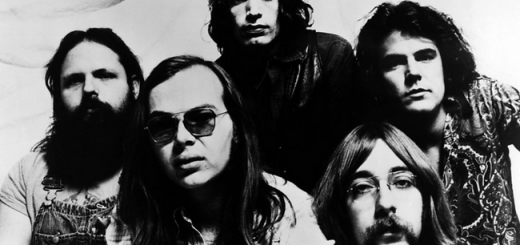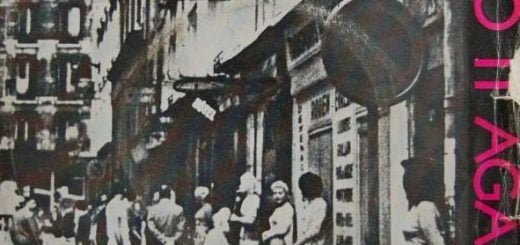Deacon Blues by Steely Dan Lyrics Meaning – Unveiling the Jazz-Rock Anthem’s Existential Core
Lyrics
That shape is my shade
There where I used to stand
It seems like only yesterday
I gazed through the glass
At ramblers, wild gamblers
That’s all in the past
You call me a fool
You say it’s a crazy scheme
This one’s for real
I already bought the dream
So useless to ask me why
Throw a kiss and say goodbye
I’ll make it this time
I’m ready to cross that fine line
Learn to work the saxophone
I play just what I feel
Drink Scotch whiskey all night long
And die behind the wheel
They got a name for the winners in the world
I want a name when I lose
They call Alabama the Crimson Tide
Call me Deacon Blues
My back to the wall
A victim of laughing chance
This is for me
The essence of true romance
Sharing the things we know and love
With those of my kind
Libations
Sensations
That stagger the mind
I crawl like a viper
Through these suburban streets
Make love to these women
Languid and bittersweet
I rise when the sun goes down
Cover every game in town
A world of my own
I’ll make it my home sweet home
Learn to work the saxophone
I play just what I feel
Drink Scotch whiskey all night long
And die behind the wheel
They got a name for the winners in the world
I want a name when I lose
They call Alabama the Crimson Tide
Call me Deacon Blues
This is the night of the expanding man
I take one last drag
As I approach the stand
I cried when I wrote this song
Sue me if I play too long
This brother is free
I’ll be what I want to be
I learned to work the saxophone
I play just what I feel
Drink Scotch whiskey all night long
And die behind the wheel
They got a name for the winners in the world
I want a name when I lose
They call Alabama the Crimson Tide
Call me Deacon Blues
For the listener seeking to unravel the poignant complexities woven into the fabric of Steely Dan’s ‘Deacon Blues,’ it becomes apparent that this isn’t just another jazz-rock anthem from the late 70s. The song, a centerpiece of the band’s 1977 album ‘Aja,’ remains today an enigmatic ode to the anti-hero and the great American dream turned on its head.
With a seamless blend of Donald Fagen’s smoky voice and Walter Becker’s polished production, ‘Deacon Blues’ continues to resonate with fans due to its intricacies of character and the meticulous construction of its narrative world. The song feels like a film where every listener finds a different scene to relate to, creating a timeless piece of music worth dissecting.
The Expanding Man’s Anthem: Embracing the Underdog
At the song’s heart, ‘Deacon Blues’ chronicles the life of the so-called ‘expanding man,’ a man who has seemingly reached his breaking point. He’s an underdog—tired of playing by society’s rules, yearning for a change, and determined to rebel against the confinements he’s been dealt. It’s here that Steely Dan crafts an anthem that resonates with anyone who’s ever felt cornered by life’s expectations.
Indeed, the name ‘Deacon Blues’ itself becomes symbolic. Deacons, typically figures of respect and order within a church, juxtaposed with ‘Blues,’ a genre stemming from soulful acknowledgments of hardship and despair, meld to create an oxymoron that encapsulates the essence of the protagonist—someone caught between aspirations of grandeur and the comfort of resignation.
Chasing Shadowy Dreams: The Mirage of American Success
Through the vivid imagery of ‘gazing through the glass’ and bittersweet encounters, ‘Deacon Blues’ delves into the hollow pursuit of the American Dream. The protagonist isn’t just craving success; he’s seeking validation in a world where winning is the only currency. Yet, Steely Dan skilfully hints that the characters’ desires may be as much a fantasy as the rambler’s transient joy.
In a brutally honest admission, ‘I already bought the dream’ signifies a capitulation to society’s illusive smoke and mirrors. It’s an investment in the superficial dance of success, where true contentment is never truly part of the bargain. The dream sold is laced with cynicism, representing a much darker truth about the cost of the chase.
The Seduction of the Fall: An Ode to the Beautiful Losers
‘I want a name when I lose’ – these poignant lines pierce through the facade of triumphalism that pervades American culture. It’s a radical departure from the norm, a euphony for those who find beauty in fallibility and recognize the courage required to challenge societal norms. Steely Dan doesn’t just acknowledge the losers; they celebrate them with a sophisticated swagger.
This sentiment becomes a thematic anchor for the entire track, and by extension, a voice for the silent majority who never grace the winner’s podium. The song’s character wants more than anonymity in defeat; he craves distinction, acceptance, and perhaps even a legacy, thereby redefining what it means to be victorious.
Dissecting the Saxophone’s Cry: A Concealed Aria of Liberation
‘Learn to work the saxophone’ in the lyrics isn’t merely about mastering an instrument but symbolizes the character’s journey towards liberating self-expression. The saxophone’s wail in the musical composition carries with it a powerful narrative, steeped in the jazz culture, a beacon of autonomy and birthplace of the improvisation that defies norms.
The yearning to ‘play just what I feel’ becomes a manifesto of individuality, a reclaiming of the right to feel in a world that prioritizes the material over the emotional. In the broader sense, the saxophone is the soul’s voice, at once drowning in whiskey-soaked melancholy and rising ablaze with the fires of artistic creation.
Memorable Lines that Echo Through Time
‘Drink Scotch whiskey all night long/And die behind the wheel,’ resonates as one of the song’s most memorable and harrowing lines. It evokes a defiant embrace of risk and fatalism—an existence submerged in hedonism and eventually spun out of control. These words hang in the air, laden with the smoke of a timeless barroom, the clinking of glasses punctuating every note.
It is the crackling energy of these lines, and others like them throughout ‘Deacon Blues,’ that propels the song into the echelons of the modern classics. Each phrase carries a weight, a consideration for life’s complexities painted in both broad and finely-tuned strokes, ringing out as a siren’s call to the disenfranchised dreamers of every generation.








